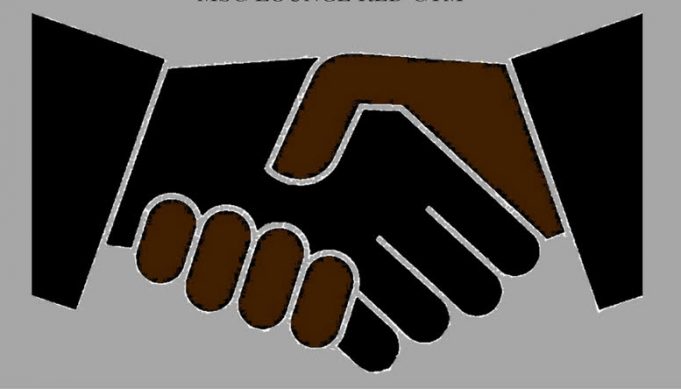“As demographics continue to change, black and brown communities will have more power in elections. It is necessary to be informed and engaged,” says Malik Anderson. “You don’t have to be anyone special or in power to contribute to a collective effort. All voices are significant. I believe that if we come together and make an effort towards voting in our best interest, that we can achieve the goals that we hope for.”
Anderson, who studies journalism and mass communications and radio-television-film while participating in the Digital Studies Certificate program at the University of Wisconsin-Madison, has been busy organizing “The Black and Brown Vote: A Discussion About Civic Engagement in the Current Political Climate” that will feature a panel of informed students, faculty members, and community members tonight at the UW-Madison Multicultural Student Center.

Over the summer, Anderson was working at Wisconsin Public Radio in a fellowship through the Emma L. Bowen Foundation. He joined over 4,000 of the nation’s top journalists, media executives, public relations professionals, and students in Washington D.C. for the joint conference of National Association of Black Journalists (NABJ) and National Association of Hispanic Journalists (NAHJ), the two largest minority journalist organizations in the United States. “They did a similar panel right before Hillary Clinton spoke and it was about election coverage in regards to black and brown reporters. I thought it was a very interesting panel and I wanted to replicate that but for civic engagement in regards to students on campus,” Anderson says. “That’s where the basis for the idea of ‘The Black and Brown Vote’ came from.”
He brought the idea of having a panel to NABJ Wisconsin, “and it just spiraled from there,’ says Anderson, who is also an online journalist, photographer/videographer and performance artist. Anderson’s fraternity, Sigma Lambda Beta, was very politically active and quickly came on board for “The Black and Brown Vote.”
“For a majority of my lifetime, until Barack Obama, I kept remembering elections where communities of color and people of color felt powerless and voiceless,” Anderson says. “We didn’t feel like elections or being civically engaged made a difference. I wanted a platform where we could have a platform to talk about: What can we do?”
“The Black and Brown Vote” will speak about issues important to Black, Latinx, and Asian American voters in the 2016 election, the historical role of people of color in democracy, and offer suggestions about how to get involved. There will be live Tweet stream captured through the hashtag #BABV16, so people are encouraged to send in the questions they have about this election and civic participation surrounding people of color.

The group of panelists will speak about how news influences our democratic process, civic engagement in communities of color, and student activism. The panel will be moderated by NABJ/SJMC student Marquise Mays. The panelists include:
◆ Professor Michael Wagner, associate professor in the University of Wisconsin Madison’s School of Journalism and Mass Communication
◆ Professor Cindy I-Fen Cheng, Faculty in the History Department, Author of “Citizens of Asian America: Democracy and Race during the Cold War”
◆ Mariam Coker, First Wave Student and Vice Chair of Associated Students of Madison
◆ Jessica Franco-Morales, Student Activist, Former ASM Representative, Political Science Major
Nancy Jessenia Gomez, Sennet Middle School Youth Program Coordinator for Centro Hispano and PEOPLE Alumna
◆ Matthew Braunginn, Student Engagement Specialist at Middleton Cross Plains School District and co-founder, co-organizer of Young Gifted and Black Coalition
Braunginn says that the black and brown vote is too often taken for granted, and that needs to change.

“Even though it seems the Democratic Party has yet to fully appreciate and recognize it, the black and brown vote won them the last two presidential elections and if Clinton wins this year, will win them that, too,” Braunginn tells Madison365. “They make up a larger percentage of Democratic votes than white voters right now. In fact, the last presidential election black voter turnout was higher than white Americans.
“If they don’t start catering to the Black and Brown vote with actual policy measures, they risk losing them, especially millennials of color, to a third party,” he adds. “They must shift to the left, especially at the state and local level, but the party is still trying to cater to the mythical white Reagan Democrat swing vote, who has long been a Republican.”
“The Black and Brown Vote” will be co-sponsored by the National Association of Black Journalists at the University of Wisconsin-Madison, the Delta Delta Chapter of Sigma Lambda Beta International Fraternity, Inc. and the Zeta Xi Chapter of Delta Sigma Theta Sorority, Inc.
“I’m hoping for a nice turnout at this event. It is an extremely important topic,” Anderson says. “It will be interesting. There has been a lot of planning for this event. There has been a need for it to happen and for us to have these discussions. Too often, we feel powerless and vulnerable and we are left without answers. I think creating these spaces are a way that we can pursue those answers and engage in a conversation that will lead to action.”
“The Black and Brown Vote: A Discussion About Civic Engagement in the Current Political Climate” will take place on Wednesday, Oct. 12, 5:30-6:30 p.m. at the UW-Madison Multicultural Student Center Lounge in the Red Gym, located at 716 Langdon St.




























